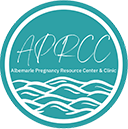Abortion
1. Verify Your Pregnancy
Before getting any type of abortion, you first need to know if you are actually pregnant. Even if you have pregnancy symptoms or have taken a home test, you may want help verifying your pregnancy. Albemarle Pregnancy Resource Center & Clinic provides laboratory-quality pregnancy tests that are 99% accurate and offers a limited OB ultrasound at no cost to confirm the viability of your pregnancy and to determine how far along you are.
2. Get An Ultrasound
An ultrasound is an important next step if you are considering terminating your pregnancy. Different abortion methods are used at different stages of pregnancy. An ultrasound will tell you how many weeks pregnant you are, which will tell you more about the options available to you. An ultrasound will also tell you if your pregnancy is viable (meaning there is a heartbeat and the pregnancy is located in the uterus) or if you might naturally miscarry.
3. Get Tested For STDs
Before choosing an abortion clinic, get tested for STDs. Many women with STDs are asymptomatic and do not realize they are infected. Women who undergo a termination procedure with an untreated STD are up to 25% more likely to develop PID (Pelvic Inflammatory Disease) following the abortion procedure. PID can lead to serious consequences including infertility, ectopic pregnancy, abscess formation and chronic pelvic pain.
Understanding Different Abortion Procedures
Different abortion methods are used to end pregnancy based on how far along you are. You deserve to know the facts and be fully informed. At the Albemarle Pregnancy Resource Center & Clinic, we take time to educate you on the different abortion methods that may be available to you. Our caring staff will help you understand what you can expect from each type of abortion procedure and present documented abortion risk factors so that you can make an informed decision. Make an appointment at Albemarle Pregnancy Resource Center & Clinic today!
Abortion Pill (Medical Abortion)
Medical or non-surgical abortion uses RU-486 or other types of chemicals to terminate an early pregnancy. This method of termination is used up to 49 days after a woman’s last menstrual period. Medical abortion may involve up to 3 office visits and may require a surgical procedure if the medical abortion is incomplete.
Surgical Abortion
If you’re not a candidate for a medical abortion or if the medical abortion fails, a surgical abortion would be necessary. As the name implies, a surgical abortion is a surgical procedure ending a pregnancy by emptying the uterus (or womb) using surgical instruments. There are different types of surgical procedures and different methods (depending on how far along you are).
No One Can Decide for You
When faced with an unintended pregnancy everyone wants to give their opinion about what you should do. But it’s YOUR decision, and no one should decide for you. Our medical staff and patient advocates will give you the guidance and support you need to make an informed decision for yourself. No one can force you to terminate your pregnancy, even if you are a minor.
Questions to Ask if Seeking An Abortion
If you are considering getting an abortion, there are a lot of questions to think about before deciding what to do.
- Am I really pregnant?
- How far along in the pregnancy am I?
- Do I have an STD?
- What abortion methods can be used?
- What happens after an abortion?
- Are there other options available to me?
- What if I have already had an abortion?
- Make an appointment to discuss abortion procedures and get answers to your questions about pregnancy and abortion.
